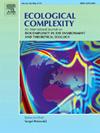The central importance of the honeybee (Apis mellifera L.) within plant-bee interaction networks decreases along a Neotropical elevational gradient
IF 3.1
3区 环境科学与生态学
Q2 ECOLOGY
引用次数: 0
Abstract
The honeybee Apis mellifera is an introduced managed pollinator species in many world regions and exhibits a high capacity to compete for resources against native bee species. Despite empirical evidence showing that A. mellifera establishes a great number of interactions within plant-bee interaction networks (i.e., high interactive role), little is known on whether its interactive role changes along elevational gradients. Being motivated by these concerns, here we assessed the species richness of plants, bees, interaction diversity, and the interactive role of A. mellifera within plant-bee interaction networks along an elevation gradient from the coastal dunes (4 m.a.s.l.) of the Gulf of Mexico up to the pine-fir forests (3425 m.a.s.l.) in the extinct volcano Cofre de Perote in Mexico. Moreover, we evaluated the interactive role of A. mellifera’s on the diversity of plant-bee interactions along this elevational gradient. We found a decrease in the richness of plants, bees, interaction diversity as elevation increased, and the interactive role of A. mellifera within the networks also decreased with elevation. Moreover, the interactive role of A. mellifera had no effect on the diversity of plant-bee interactions along the studied elevational gradient. These findings indicate that climatic conditions could be filtering plant and bee species and their interactions, even the interactions of a super generalist species as A. mellifera. In short, our study helps understand the responses of species and their biotic interactions over Neotropical elevational gradients. By examining the pronounced climatic shifts, similar to those induced by climate change, we also highlight the sensitivity of these responses to significant environmental alterations. Our findings underscore the critical importance of understanding ecological dynamics in the face of rapidly changing climates.
蜜蜂(Apis mellifera L.)在植物-蜜蜂互动网络中的核心重要性随着新热带海拔梯度而降低
蜜蜂(Apis mellifera)是世界上许多地区引进的人工授粉物种,与本地蜜蜂物种竞争资源的能力很强。尽管经验证据表明,蜜蜂在植物-蜜蜂互动网络中建立了大量互动关系(即高互动作用),但人们对蜜蜂的互动作用是否会随着海拔梯度的变化而变化知之甚少。出于这些考虑,我们在此评估了从墨西哥湾沿海沙丘(海拔 4 米)到墨西哥 Cofre de Perote 死火山松杉林(海拔 3425 米)的海拔梯度上植物、蜜蜂的物种丰富度、交互多样性以及 A. mellifera 在植物-蜜蜂交互网络中的交互作用。此外,我们还评估了 A. mellifera 在这一海拔梯度上对植物-蜜蜂相互作用多样性的交互作用。我们发现,随着海拔的升高,植物、蜜蜂和互动多样性的丰富程度有所降低,而 A. mellifera 在网络中的互动作用也随着海拔的升高而降低。此外,在所研究的海拔梯度上,A. mellifera的交互作用对植物-蜜蜂交互作用的多样性没有影响。这些发现表明,气候条件可能会过滤植物和蜜蜂物种及其相互作用,甚至是像A. mellifera这样的超级通才物种的相互作用。简而言之,我们的研究有助于了解物种及其生物相互作用在新热带海拔梯度上的反应。通过研究明显的气候转变(类似于气候变化引起的转变),我们还强调了这些反应对重大环境变化的敏感性。我们的研究结果突出表明,面对快速变化的气候,了解生态动态至关重要。
本文章由计算机程序翻译,如有差异,请以英文原文为准。
求助全文
约1分钟内获得全文
求助全文
来源期刊

Ecological Complexity
环境科学-生态学
CiteScore
7.10
自引率
0.00%
发文量
24
审稿时长
3 months
期刊介绍:
Ecological Complexity is an international journal devoted to the publication of high quality, peer-reviewed articles on all aspects of biocomplexity in the environment, theoretical ecology, and special issues on topics of current interest. The scope of the journal is wide and interdisciplinary with an integrated and quantitative approach. The journal particularly encourages submission of papers that integrate natural and social processes at appropriately broad spatio-temporal scales.
Ecological Complexity will publish research into the following areas:
• All aspects of biocomplexity in the environment and theoretical ecology
• Ecosystems and biospheres as complex adaptive systems
• Self-organization of spatially extended ecosystems
• Emergent properties and structures of complex ecosystems
• Ecological pattern formation in space and time
• The role of biophysical constraints and evolutionary attractors on species assemblages
• Ecological scaling (scale invariance, scale covariance and across scale dynamics), allometry, and hierarchy theory
• Ecological topology and networks
• Studies towards an ecology of complex systems
• Complex systems approaches for the study of dynamic human-environment interactions
• Using knowledge of nonlinear phenomena to better guide policy development for adaptation strategies and mitigation to environmental change
• New tools and methods for studying ecological complexity
 求助内容:
求助内容: 应助结果提醒方式:
应助结果提醒方式:


